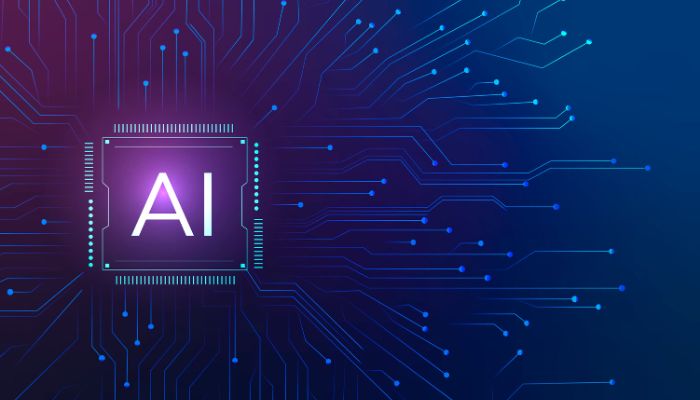The rapid advancement of artificial intelligence (AI revolution ) has sparked both excitement and concern across the globe. From revolutionising industries and enhancing productivity to raising significant ethical dilemmas, AI has become a transformative force. Governments worldwide are grappling with the multifaceted impact of AI, implementing measures to address issues such as data privacy, security, ethics, job creation, and economic efficiency. In this article, we explore the global response to AI’s effects, with a special focus on India’s role in shaping a robust AI ecosystem.
1. Data Privacy and Security: Striking a Balance
As AI technologies become more integrated into everyday life, concerns around data privacy and security have risen dramatically. AI systems often rely on vast amounts of personal data to function effectively, but this reliance raises questions about how data is collected, stored, and used. Governments are increasingly focused on implementing stringent data privacy laws to ensure that personal information is protected.
- European Union: The General Data Protection Regulation (GDPR) has set the standard for data protection, requiring companies to be transparent about their data practices and to give consumers more control over their personal data.
- United States: While there is no federal data privacy law, states like California have implemented the California Consumer Privacy Act (CCPA), granting residents rights over their personal data.
- India: India is taking significant steps to strengthen its data privacy framework with the introduction of the Personal Data Protection Bill. The government is also working toward expanding its digital infrastructure. India’s data center capacity is projected to nearly double, from 0.9 GW in 2023 to approximately 2 GW by 2026, ensuring the capacity to handle the growing demand for data storage, particularly for AI-driven applications.
2. Morality and Ethics: The Call for Responsible AI
As AI systems grow more autonomous, concerns around ethics and morality have taken centre stage. How do we ensure that AI behaves in ways that align with human values? What happens when AI systems make decisions that affect people’s lives, be it in healthcare, law enforcement, or hiring?
DeepMind’s CEO, Demis Hassabis, recently emphasized the importance of embedding morality into AI development. This reflects a broader conversation around “AI ethics,” which calls for greater accountability and responsible AI design. With AI’s increasing role in critical decisions, governments, businesses, and researchers are exploring ways to ensure AI systems are built with fairness, transparency, and ethics at the core.
Globally, organizations such as the OECD have set principles to guide the development of AI in ways that respect human rights and democratic values. As AI systems become more entrenched in everyday life, it’s clear that developing these frameworks is essential to ensure ethical practices across AI deployment.
In India, discussions on ethical concerns of ai are gaining momentum. The government is working in tandem with private sector players to ensure that AI technologies are used responsibly, with particular attention given to fairness, bias, and accountability.
3. Employment and Job Creation: Balancing Automation with Opportunity
One of the most pressing concerns surrounding the rise of AI is its potential impact on employment. AI-powered automation has already begun to replace certain jobs, particularly in sectors like manufacturing, transportation, and customer service. While AI promises to create new job opportunities, there is anxiety about whether workers can transition from one job to another in an ever-changing labor market.
Globally, AI is predicted to create millions of new jobs in areas like data science, machine learning, and AI ethics. According to PwC Global AI Jobs Barometer 2024 postings for AI jobs are growing 3.5 times faster than all other job postings, with sectors more exposed to AI experiencing nearly five times higher labor productivity growth. This information is found in the.
In India, where millions of workers are employed in low-skill jobs that are at risk of automation, the government has recognized the importance of investing in education and training. Initiatives aimed at reskilling workers in sectors such as IT and digital technology are underway. Companies like Microsoft are also investing heavily in AI-related job training, pledging $80 billion in data centers and certifying 50,000 workers in AI and data sciences.
4.Productivity and Efficiency: The Positive Impact of AI on Global Economies
AI’s ability to improve productivity and efficiency is one of its most compelling attributes. By automating routine tasks, AI allows businesses to streamline operations, reduce costs, and improve decision-making. In sectors like healthcare, AI has the potential to enhance diagnostic accuracy and treatment outcomes, while in manufacturing, AI-driven automation boosts production efficiency.
The global economic impact of AI is staggering. According to a report from PwC, AI is projected to contribute a staggering $19.9 trillion to the global economy by 2030, accounting for 3.5% of global GDP.
In India, the government is making strategic investments to support AI-driven productivity. India’s cloud infrastructure, including AI-specific GPUs, is undergoing rapid expansion. NVIDIA, in partnership with local companies like Yotta and Tata Communications, announced that India will see a nearly 20-fold increase in AI computing infrastructure by the end of 2024. This is a crucial step for India’s push to become a global leader in AI technology.
A Global Effort for a Responsible AI Future
The impact of AI is profound and far-reaching, affecting everything from job markets to ethical standards. Governments across the world are taking measures to ensure that AI benefits society while minimizing its risks. In India, the drive to enhance cloud infrastructure and GPU capacity is an essential step toward ensuring the country’s AI potential is fully realized. Globally, discussions around AI ethical issues, job creation, and productivity gains are pushing governments to adopt comprehensive strategies for AI deployment.
As we move into an increasingly AI-driven future, it is clear that the path forward must be paved with careful consideration of the technology’s implications. Only through global cooperation and a commitment to responsible development can AI truly be harnessed for the greater good of all.





